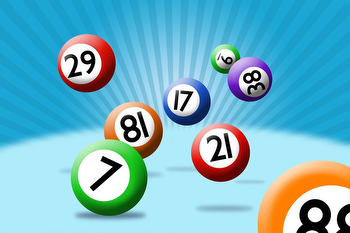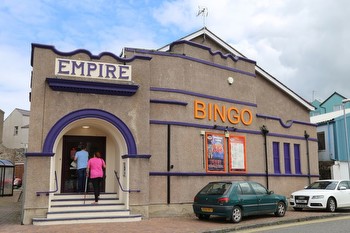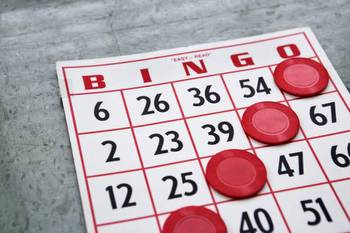Twenty Years Of Reinvention: How Bingo Went From Bust To Boom

The world has changed enormously in the past twenty years, and the main catalyst for that change has been the internet. In 1999, there were no banking apps, to check your current account balance you had to physically trudge down to the bank.
Back then, in those heady pre-Millennium days, politics was something your parent argued about, rather than being a topic you’d happily argue about with a Russian bot on Twitter for hours on end.
Something else that has shifted in generational popularity in the past two decades is bingo. In 1999 the game was mainly enjoyed by pensioners and was seemingly, on its last legs, now it is a game on the up, enjoyed by a much younger audience.
1999: The Final Death Throes Of An Outdated & Sickly Game
The prospect of an online bingo site was still some way off back in 1999. As things stood, the game was on its last legs. Medically speaking, if bingo were a person, doctors would have been urging us to make it ‘as comfortable as possible’ in the limited time it had life.
It was a sad state of affairs, considering how in vogue bingo had been just three decades earlier. Throughout the 1960s, the number of people visiting bingo halls each week far exceeded the combined overall attendance of England’s top-flight football games.
Indeed by the mid-1960s there were fourteen million registered bingo players in England, Scotland and Wales with 150,000 people a day visiting a local hall. Yet by 1999, bingo’s popularity had fallen by almost 90%.
What Happened?
Numerous in-depth articles and research pieces have been published with thorough analyses of bingo’s decline. However, to simplify somewhat, there were three main reasons for the steep decrease in bingo players by 1999:
Cheap Flights: You might think that cheap flights to foreign destinations would have nothing to do with the fortunes of British bingo, but they had a hugely detrimental effect on the game. The majority of Britain’s bingo halls were situated in coastal towns and cities that welcomed hordes of guests over the summer month. Cheap flights abroad hit these towns and cities hard, as well as bingo.
Stale: Not the smell of actual bingo halls (although that complaint has been levelled at a few), but rather an observation on the state of the game in 1999. Despite the introduction of a couple of prominent national tournaments, nothing much had changed about bingo in almost forty years, impacting the game’s ability to attract new players.
Competition: When bingo was at its peak in the 1960s, quite frankly there were not as many leisure activities available to the public as there were in 1960. Most people didn’t have a television, and those that did had access to just a couple of channels. On top of the rise of TV in the 1990s, there were also more gambling opportunities that were impacting on bingo’s market share.
The Internet Sparks The Revival
At the time of writing bingo is vastly more popular than it was in 1999 and boasts millions of active players. Its revival did not happen overnight, but it did come as a surprise to many within the industry.
As the calendar ticked over into the 2000s, online entrepreneurs were busy investing in online gambling. The early focus of these investors was to mimic the casino experience and bring gambling to a much wider audience than it had previously enjoyed.
To say that this was a success would be a massive understatement. Online gambling exploded in popularity thanks mainly to the success of online slots and online poker rooms. This prompted further investment in the sector quickly leading to saturated online gambling industry.
One of the areas that had been sorely neglected by early investors was bingo, something which didn’t escape the attentions of a small selection of savvy entrepreneurs. At around the mid-point of the noughties a handful of companies invested in online bingo sites.
Within a few years these sites had gone on to mimic the success of online casinos, leading to – you guessed it – an avalanche of investment into online bingo. Now, every major gambling company in the UK either runs its own bingo site or owns a subsidiary company, such as the popularity of the game.
Why Did Bingo Succeed Online

These critics, however, were wrong. Socialising was not bingo’s biggest attraction, rather it was the dopamine hit of winning that enticed people to play the game. The early online bingo investors gambled, so to speak on this assertion and reaped the rewards.
Chat servers were of course incorporated onto online sites to mitigate the loss of the community vibe of the traditional bingo hall, but it seems that remote bingo would have succeeded even without them.
Intrinsically people love the dopamine hit that they receive when they win at anything. By focusing on this through regular competitions, frequent wins and industry-leading usability, the earliest online bingo sites succeeded where traditional bingo halls had failed for decades – they attracted hundreds of thousands of new players.
In addition to those factors, the availability of bingo on the internet and from mobile devices caught the gaze of a much younger and more affluent demographic. The industry has now sustained itself on that success for the better part of a decade and is now looking to expand further, through the implementation of new technology.
Rumour has it that augmented and virtual reality online bingo sites could be a very real possibility in just a few years. That’s some shift change from 1999…




































